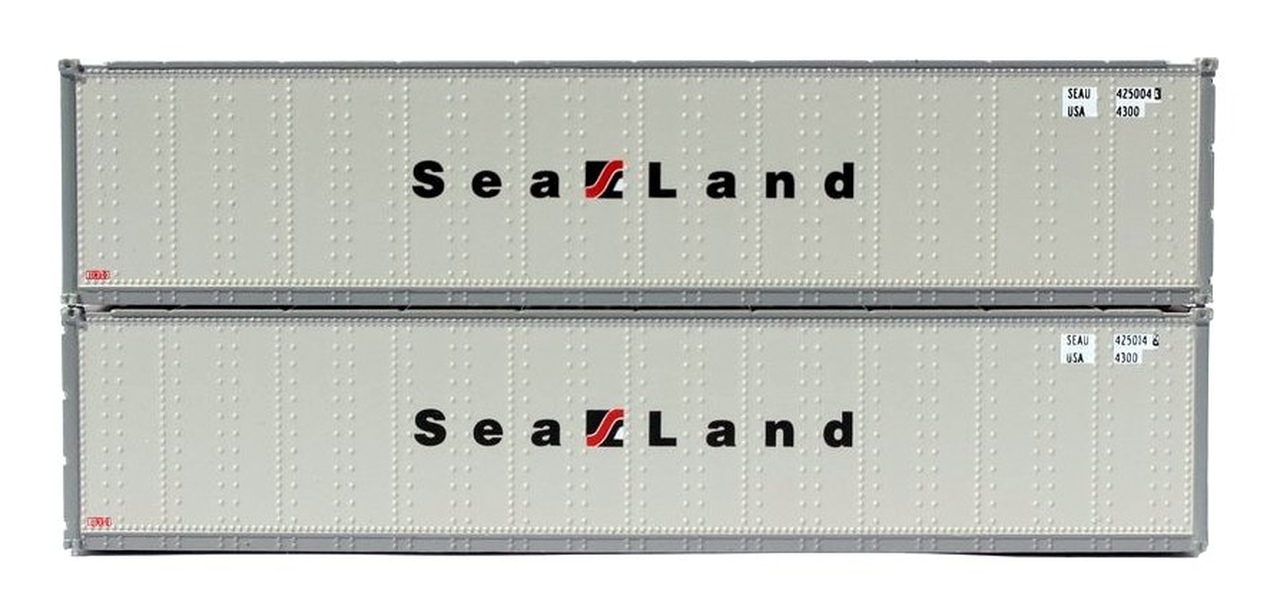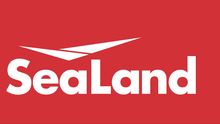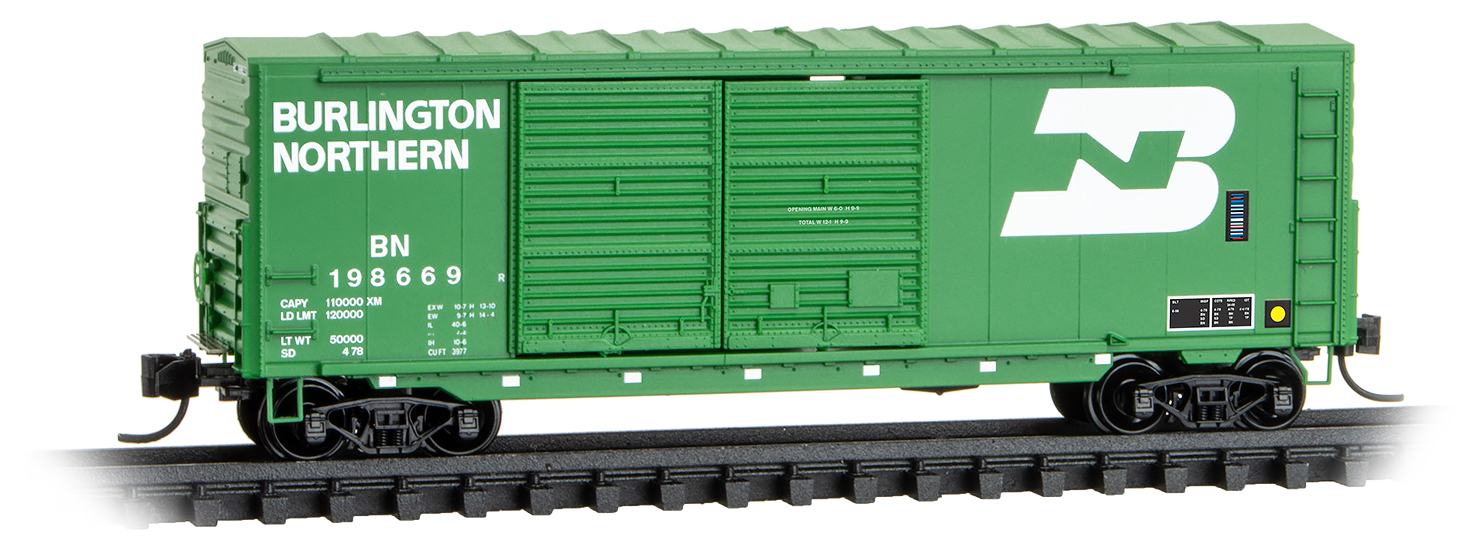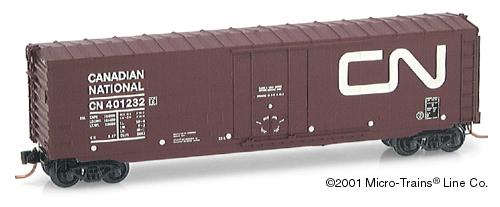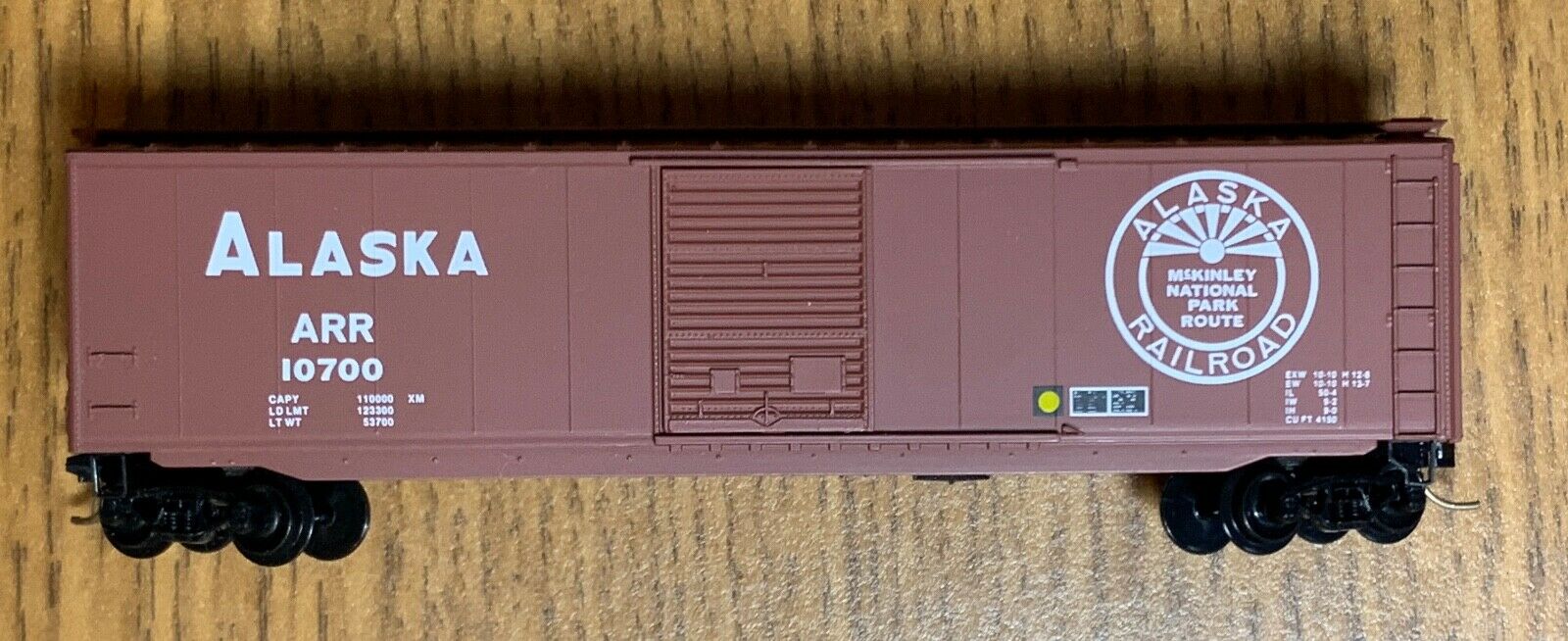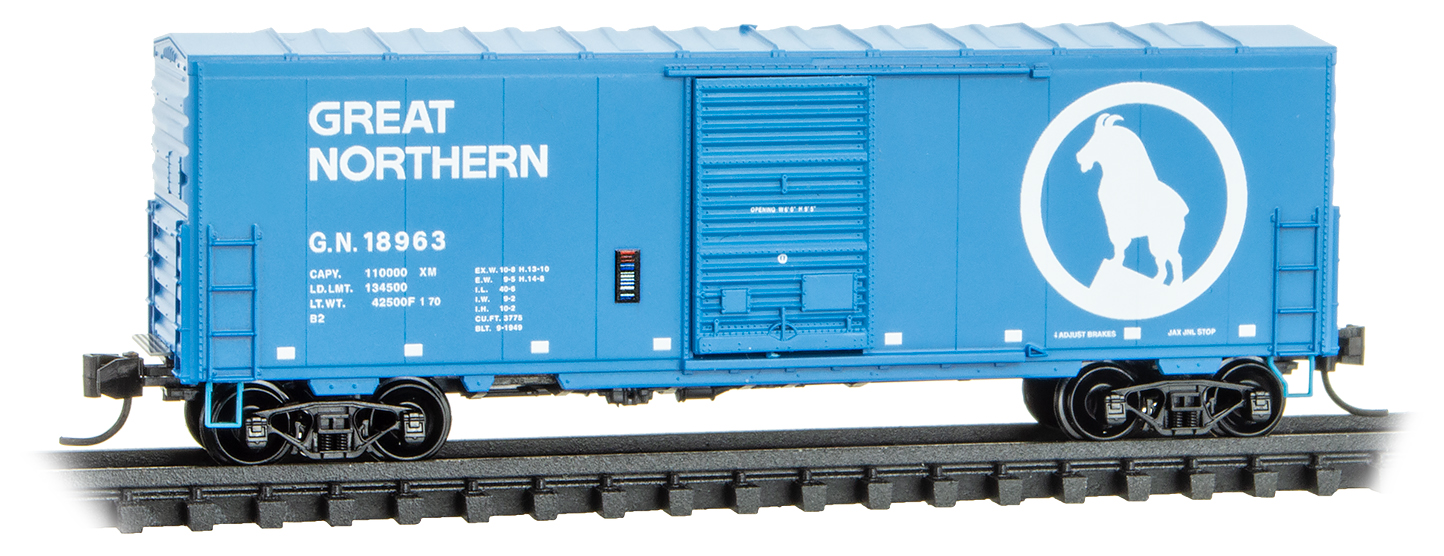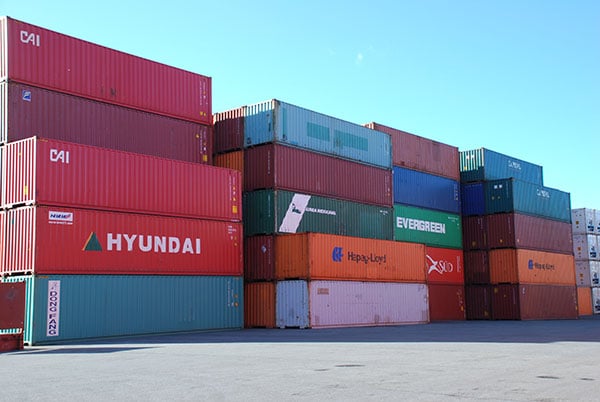Prototype History: The 40 foot container is the king of the container business. It is the most common standard container size used for international and domestic shipping. Most intermodal operations that handle overseas shipping are optimized for this container size. These containers are typically reinforced for loading, unloading and transportation by ship.
Dry containers are meant for non-refrigerated goods and hence are the most common type.
Smoothside containers, while less popular than their corrugated brethren, are still popular. They are frequently built with insulation in their walls.
Dry containers are meant for non-refrigerated goods and hence are the most common type.
Smoothside containers, while less popular than their corrugated brethren, are still popular. They are frequently built with insulation in their walls.
Road Name History: Malcom McLean secured a bank loan for $22 million and in January 1956 bought two World War II T-2 tankers. On April 26, 1956, with 100 invited dignitaries on hand, one of the converted tankers, the SS Ideal-X (informally dubbed the "SS Maxton" after McLean's hometown in North Carolina), was loaded and sailed from the Port Newark-Elizabeth Marine Terminal, New Jersey, for the Port of Houston, Texas, carrying fifty-eight 35-foot (11 m) Trailer Vans [8] later called containers, along with a regular load of liquid tank cargo. As the Ideal-X left the Port of Newark, Freddy Fields, a top official of the International Longshoremen's Association, was asked what he thought of the newly fitted container ship. Fields replied, "I'd like to sink that son of a bitch." McLean flew to Houston to be on hand when the ship safely docked.
SeaLand, now a division of the Maersk Group, is an intra-regional container shipping company headquartered in Miramar, Florida with representation in 29 countries across the Americas. The company offers ocean and intermodal services using container ships, trucks, and rail serving customers between North and South America, Central America and the Caribbean
In March 1999, CSX separated SeaLand into three entities: an international shipping company, a domestic shipping company, and a terminal operator.
In December 1999, Maersk Line’s parent company A.P. Moller – Maersk acquired the international container shipping business and the SeaLand name.
In 2000, Maersk Line changed its commercial name globally to "Maersk SeaLand" as a result of SeaLand’s acquisition the previous year.
In 2003, the Carlisle Group bought the domestic shipping line from CSX and changed the name to Horizon Lines.
In 2006, the commercial name SeaLand ceased to exist when, the then known as "Maersk SeaLand," changed its name to "Maersk Line" after the purchase of Royal P&O Nedlloyd.
In January 2014, due to the strong brand recognition throughout the intra-Americas region, the Maersk Group announced the revival of the SeaLand brand as a specialized intra-regional carrier, taking over the existing Maersk Line network for intra-Americas trade starting January 2015.
In January 2015, SeaLand started operations as the standalone carrier of the Americas for Maersk Group.
SeaLand, now a division of the Maersk Group, is an intra-regional container shipping company headquartered in Miramar, Florida with representation in 29 countries across the Americas. The company offers ocean and intermodal services using container ships, trucks, and rail serving customers between North and South America, Central America and the Caribbean
In March 1999, CSX separated SeaLand into three entities: an international shipping company, a domestic shipping company, and a terminal operator.
In December 1999, Maersk Line’s parent company A.P. Moller – Maersk acquired the international container shipping business and the SeaLand name.
In 2000, Maersk Line changed its commercial name globally to "Maersk SeaLand" as a result of SeaLand’s acquisition the previous year.
In 2003, the Carlisle Group bought the domestic shipping line from CSX and changed the name to Horizon Lines.
In 2006, the commercial name SeaLand ceased to exist when, the then known as "Maersk SeaLand," changed its name to "Maersk Line" after the purchase of Royal P&O Nedlloyd.
In January 2014, due to the strong brand recognition throughout the intra-Americas region, the Maersk Group announced the revival of the SeaLand brand as a specialized intra-regional carrier, taking over the existing Maersk Line network for intra-Americas trade starting January 2015.
In January 2015, SeaLand started operations as the standalone carrier of the Americas for Maersk Group.
Brand/Importer Information: Now featuring our new line of 1:160 scale models. Developed using the latest in global technology & CAD systems, these New 2017 tooled models feature IBC connecting pins AND our Magnetic connecting system, and are decorated with detailed prototype printing. Our JTC container series of models offer Multiple door styles and variants to match prototypes. The First release is a 'Rib-style' corrugated side Canvas/Open top container, Now In Stock. Our second release is the more common 'wave' corrugation sides version, expected January 2018. Both are New to N scale. Release styles 3 & 4 will be around March 2018, and will be 2 of the most popular container styles in use. Please read our 'Latest News' section for updates. Thank You for visiting. New Facebook page: www.facebook.com/JTCmodeltrains
Item created by: CNW400 on 2020-06-18 17:38:45
If you see errors or missing data in this entry, please feel free to log in and edit it. Anyone with a Gmail account can log in instantly.
If you see errors or missing data in this entry, please feel free to log in and edit it. Anyone with a Gmail account can log in instantly.


